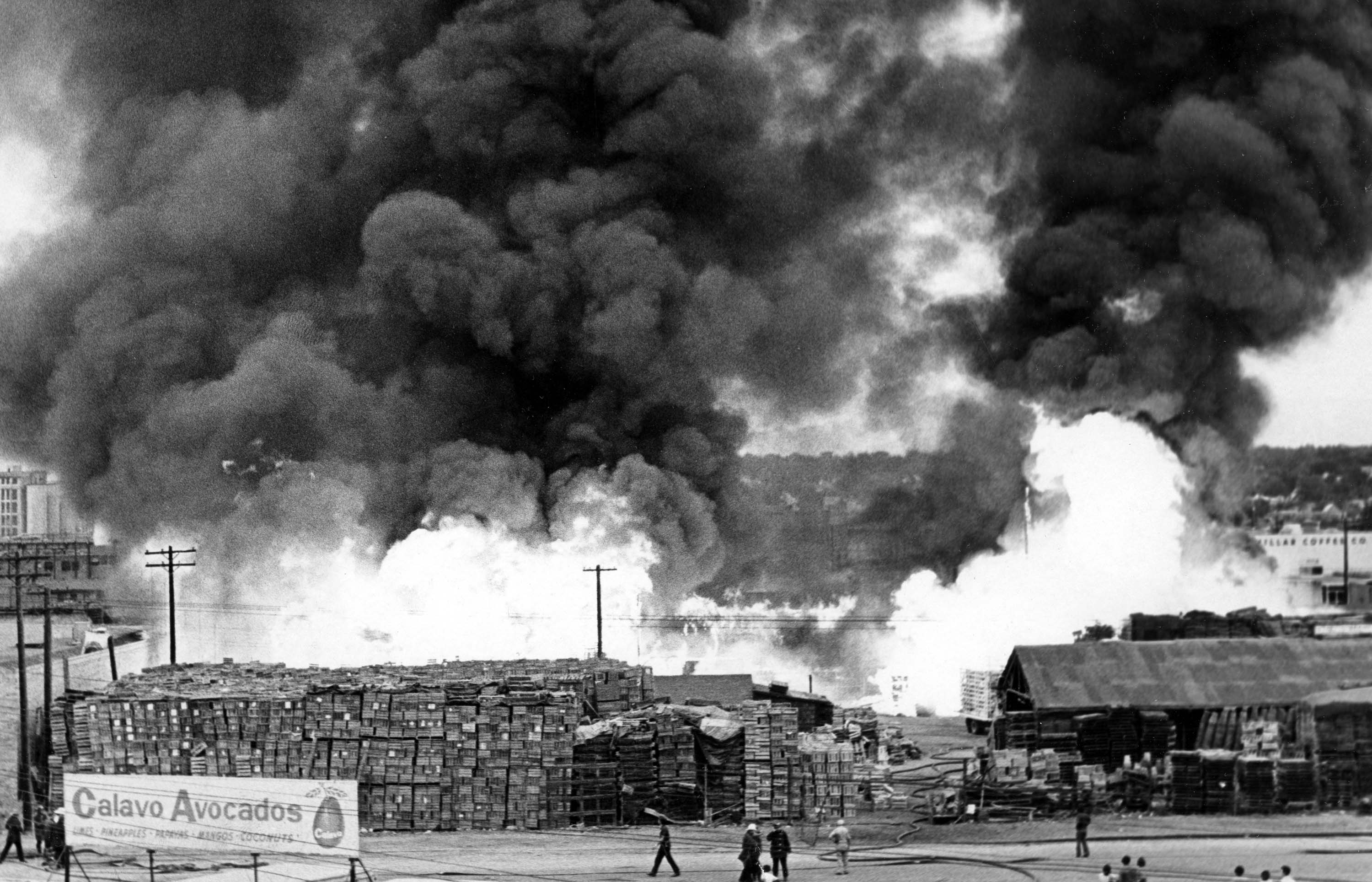Denargo Market
Fifty-four years ago today, flames shot into the sky above Denver’s Denargo Market.
Founded in 1939 on 30 acres at 29th and Broadway, Denargo Market was the brainchild of the Growers’ Market Association and Union Pacific Railroad.
At its peak, it offered 504 produce stalls, cold storage, a restaurant, administrative offices, and even a barbershop, serving as the city’s beating heart for wholesale agriculture. But beneath the market’s industrial hustle was a fragile infrastructure that would face two devastating reckonings.
The first came in 1952, when an oil stove explosion tore through part of the market, inflicting $325,000 in damage, a massive sum at the time. Yet the real turning point came nearly two decades later.
On July 7, 1971, a four-alarm fire broke out at Denargo Market, burning intensely for more than two hours and drawing thousands of spectators to the scene. The city’s worst fire since 1962, threatened to spread even further due to the presence of railroad tankers filled with carbon dioxide, 50 kegs of black powder, and 13,000-volt power lines overhead.
The fire not only gutted much of the market but also cast a long shadow over its future.
For many, it marked the symbolic end of Denargo’s heyday. As Denver’s economic engine shifted away from rail and warehousing, the market slipped into decline, its charred structures a quiet reminder of what once was.
But in 2025, the story has taken a very different turn.
We reported the unveiling of Rhingo the Rhino, a large-scale public art piece at the center of the reimagined Denargo Market, which has become a symbol of what's to come.
Developers and community leaders have positioned the site for playable public space, with four acres dedicated to art, events, nature, and gathering. Plans include a pedestrian-only plaza, a riverfront promenade, farmers markets, sports courts, and more, all in tribute to the site's rich, complicated history.
What once burned to the ground may soon become one of the most thoughtfully activated spaces in the city, complete with curbless streets and accessible play structures.
The resurrection of Denargo is not just a redevelopment story, t’s a cultural one. And if the past is any indication, this patch of RiNo has always had a flair for reinvention.
